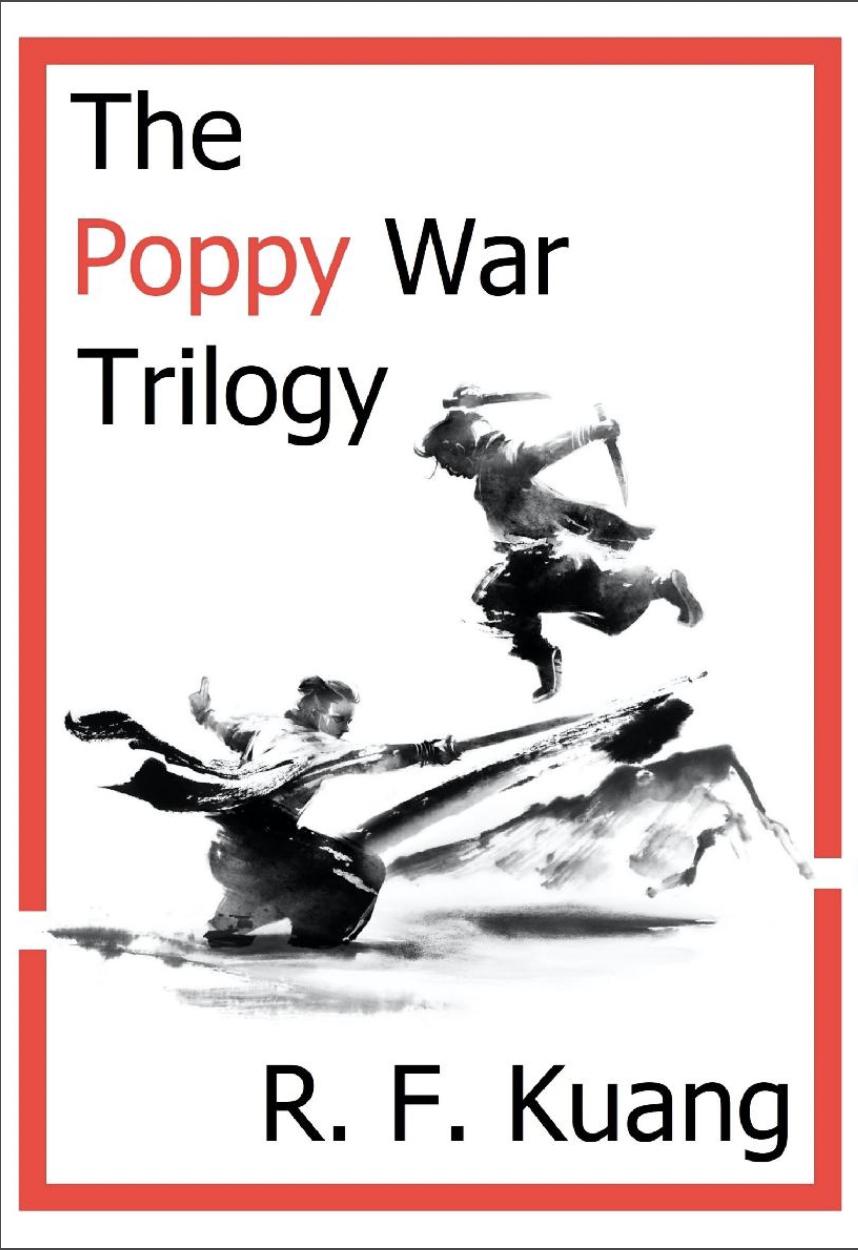CONTENTS
Preface xi
TheDecline-of-WarThesis xvi
IOnlytheDead
1.Introduction 3
TheSpreadofPeaceandtheSpreadofWar 3
TheArguments 5
EvaluatingtheArguments 7
War,Chance,andNumbers 9
ExplainingSystemicTrendsinWarfare 14
IIReasonsforSkepticism
2.ReasonsforSkepticism,PartI:Data 21
TrendsinConflictInitiation 22
The“LongPeace” 24
AttitudesAboutWar 29
ThePacifyingEffectsofCivilization 33
TrendsinBattleDeaths 39
ThePitfallsofPerCapita 42
vii
WarandPeace 44
Conclusion 45
3.ReasonsforSkepticism,PartII:Explanation 47
TheComplexityofInternationalBehavior 48
DispositionsandSituations 49
StrategicInteraction 54
StructureandAnarchy 56
TheSpreadofEnlightenmentHumanism 58
TheDarkSideoftheEnlightenment 59
JustWarandPerpetualPeace 62
TheStudyofWEIRDPeople 64
TheRoleofChance 65
RandomnessinThick-TailedDistributions 68
Conclusion 72
IIIWhattheDataTellUs
4.IsInternationalConflictGoingoutofStyle? 75
ThreeMeasuresofWarfare 76
MeasuringInternationalConflict 77
MeasuringtheRateofConflictInitiation 83
TrendsintheRateofConflictInitiation 84
Interpretation 91
ButButBut... 93
AretheDataReliable? 93
WhatAboutUnreciprocatedUsesofForce? 95
WhatAboutOtherKindsofInternationalWars? 96
WhatAbout...? 99
Conclusion 99
5.IsInternationalConflictGettingLessDeadly? 100
MeasuringtheDeadlinessofWar 101
WhatWeAlreadyKnow:WarsGotDeadlier 250 Years Ago 104
WarsHaven’tGottenLessIntenseSinceThen 106
WarsHaven’tGottenLessSevere,Either 114
WarPrevalence Has Changed... 117
ButtheDangerofEscalationHasn’tChanged 118
viii CONTENTS
AndThat’sWhatReallyMatters 120
Caveat:MilitariesDon’tKeepUpWithPopulation
Growth 122
Interpretation 124
Conclusion 130
6.AretheCausesofInternationalConflictBecomingLess Potent? 131
ThePotencyoftheCausesofWar 131
MeasuringPotency 133
Testing 135
Interpretation 137
Conclusion 139
IVMakingSenseoftheData
7.InternationalOrder 143
InternationalOrder 145
WhatIsOrder? 149
TheSourcesofLegitimacy 156
TheRoleofHumanNature 157
OrderandtheSourcesofSystemicConflict 159 IssuesandWar 160
TheImpactofOrder 162
TheCalculusofWar 165
InformationProblems 167
TheImpactofOrder 168
CommitmentProblems 171
TheImpactofOrder 173
Conclusion 174
8.HistoryandInternationalOrder 178
Nineteenth-CenturyEurope 179
TheConcertofEurope 179
TheMid-NineteenthCentury 184
TheBismarckianSystem 186
Weltpolitik 192
TheInterwarPeriod 199
TheColdWar 202
CONTENTS ix
ThePost–ColdWarPeriod 206
DataandAnalysis 208
Conclusion 210
VConclusion
9.ConclusionandImplications 215
OverallImplications 218
WarIsn’tGettingLessDeadly 218
InternationalOrdersFosterPeace... 219
...IfWeWantIt 220
OrderAlsoProducesWar 221
OrdersFade 221
WarAbides 223
Appendix 225
Chapter 4 Notes 225
WhatAboutCivilWars? 225
WhatAboutPoliticalRelevance? 232
WhatAbouttheCorrelatesofWarData? 232
WhatAboutaPoissonTest? 234
Chapter 5 Notes 236
RegressionResults 236
AFormalTestforDifferencesintheSlopesofPower-Law Distributions 238
Chapter 6 Notes 243
DetailedResults 243
Notes 249
Bibliography 269
Index 295
x
CONTENTS
PREFACE
“So,areweseeinglesswarintheworldtodaythanweusedto?”
Itwasspringof2008andIwasstandinginfrontofahundred undergraduates,givingthefirstlectureofanewclassonthecausesof war.Suchcoursesgenerallyrelyonhistoricalcasestudiesforevidence, andthisonewasnoexception.Atthesametime,professionalresearch ininternationalrelationsofteninvolvesdataanalysis,soIwantedtogive mystudentsafewexamplesofhowtousedatatoexploreinteresting questions.
Italkedaboutafewdifferentwaysthatonemightthinkaboutthe question.Arefewercountriesfightingwarswithoneanotherthanhad foughtthempreviously?Arethewarsthattheydofightdeadlier?Are countrieslesslikelytorespondtoprovocationsthantheyhadbeenin thepast?Havethecausesofwardisappeared?Theseareallvalidwaysto thinkaboutadeclineofwar,andthey’reallinterestingquestions.But wecan’tpursueallofthemsimultaneously,andit’simportanttonarrow downwhichoneyouwanttoanswerbeforeyousetaboutansweringit.
Intheend,Isettledonasinglequestion—howoftendocountries initiateconflictwithoneanother?Thedeadlinessofwarisalsoan interestingquestion,ofcourse.Butthequestionofhowoftencountries resorttoviolenceintheirdealingswithoneanotherstruckmeasbeing
xi
mostrelevanttotheissueofwhetherwarwasindecline.There’sa fundamentaldifferencebetweendisagreementsthatturnviolentand thosethatdonot,andIwantedtoseewhethertheformerwere becominglesscommon.
Towardthatend,IintroducedmystudentstotheMilitarized InterstateDisputedataset,politicalscience’smostvenerabledatabaseof conflicts,goingbackto1816.Militarizedinterstatedisputes(orMIDs) arethreats,displays,orusesofforce—everythingfromsaberrattlingall thewayuptoall-outwar.Asafirstcut,Isimplyaddedupthenumber ofmilitarizedinterstatedisputeinitiationsthatoccurredineachyear andplottedthemovertime.I’vereproducedthatgraphheredirectly fromthelectureslide,asFigure0.1.Accordingtothatgraph,theworld lookedlikeanincreasinglydangerousplace.
“Looksprettyterrible,doesn’tit?”Isaid.“Imean,justeyeballing it,itlookslikethenumberofdisputeinitiationshasincreasedatleast tenfoldoverthelastcoupleofcenturies.Maybemore.”Mostofthe studentsnoddedinagreement.
“Butlet’sthinkaboutthisforamoment,”Isaid.“What’swrongwith thispicture?Whatdoesitleaveout?”Iwaitedprobablytenorfifteen seconds—itfeltlikeaneternity,butifyoustartansweringyourown questionsinthisbusiness,thestudentsquicklyrealizethattheydon’t haveto.SoIsweateditout.Finally,ayoungwomanraisedherhand andsaid,“Thenumberofcountriesintheworldhasbeenincreasingat thesametime.”
xii PREFACE
80 60 40 20 1800 # of MIDs started 1850 1825187519001950192519752000 0
Militarizedinterstatedisputesovertime.
FIGURE
0.1
“Bingo,”Ireplied.“Ifwe’reinterestedinmeasuringhowoften countriesclash,wehavetoworryabouthowmanycountriestherearein theworld.Ifthatnumberisincreasing,we’dexpecttoseethenumber ofconflictsincreasetoo,evenifstatesarenomorewarlikethanthey usedtobe.”
Iputupagraphthatshowedtheincreaseinthenumberofcountries intheworldovertime,andthenIwalkedthemthroughhowto calculatethenumberof pairs ofcountriesthereareintheworld—a numberthatgrowsmuchmorequicklythanmostpeoplethinkitdoes.1
Todrivethepointhome,Isaid,“Let’simaginethateverypairof countrieshasa1%chanceoffightinginagivenyear.Ifthereareten countries,or45pairsofcountries,you’dexpectaclasheverycoupleof years.Ifthereare50countries,or1,225pairsofcountries,you’dexpect abouttwelvesuchclasheseveryyear.Sowhenthenumberofcountries increases,youshouldseea lot moreconflict,eveniftheprobabilityof fightingforagivenpairofcountrieshasn’tchanged.Doesthatmake sense?”Lotsofnods.
Onthenextslide,whichI’vereproducedhereasFigure0.2,Idivided thenumberofmilitarizedinterstatedisputesinagivenyearbythe numberofpairsofcountriesthatexistedinthatyear.
“Nowwhatdowesee?”Onestudentpointedtowhatlookedlikea declineinthefirstpartoftheColdWarandintheyearsthatfollowedit. Anothersawwhatmighthavebeenaslightincreaseinthelatterpartof theColdWar,thoughitcouldeasilyhavebeennochangeatall.Athird
PREFACE xiii
0.0300 0.0225 0.0150 0.0075 0 1800 MID/dyad 18251875185019002000 19251975 1950
FIGURE 0.2 Militarizedinterstatedisputesperpairofcountries.
pointedoutthatthepicturewassurprisinglynoisypriortotheFirst WorldWar.Allvalidobservations.
“Soarewefinishedteasingouttrendsinwarfare?”Iasked.“Isthis ourfinalanswer?”
Isuspectnoundergraduatehaseverbeentrickedbyaquestionlike this.Minecertainlyweren’t:theycouldsmelltheboobytrapamile away.Theyscrutinizedthegraphandtossedoutafewhalfhearted answersuntilfinallyayoungmansaid,“Alotofthosecountriescan’t reacheachother?”
“Right,”Ireplied,smiling.(Ilovemyjob,and a-ha! momentslike thisoneareamongmyfavoritepartsofit.)“There’saprettygood explanationforwhyBoliviaandBotswanadon’tgotowarwithone another—theycouldn’treachoneanotheriftheytried.”Admittedly, itistruethatthehistoryofwarfarehaswitnessedsomesurprising opponents.ColombiaandEthiopia,forexample,eachlostmorethan 100soldiersincombatintheKoreanWar.Butifyouweregoingtobet onwhichcountrieswouldgotowarwithwhichothers,moreproximate countriesareamuchbetterbetthanmoredistantones,allelsebeing equal.Andastheinternationalsystemgetsbigger,thecountriesthat makeitupgetfartherandfartherapart.
“Sohowdowefix this problem?”
Thestudentsofferedacoupleofideas,andintheendsomeonehit onthesolutionthatwaswaitingonthenextslide:dividethenumber ofmilitarizeddisputesbythenumberofpairsofcountriesthatcan unambiguouslyreachoneanother.Thethirdgraph,whichshowed thenumberofmilitarizeddisputesperpairofcontiguouscountries (Figure0.3),wasalittlehardertointerpret:itlookedasthoughconflict mightbedecliningafterWorldWarII,butitalsodidn’tlookasthough theColdWarhadbeenmuchlesswarlikethanthenineteenthcentury.
“Isthereawaytoimproveonthis?”Iasked.Afteracoupleoffalse starts,oneofthestudentspointedoutthatsomecountries,likethe UnitedStates,arefullycapableofstartingwarswithfarawaycountries, sothosepairsshouldbecountedaswell.Irespondedbyaskingabout regionalpowers—countriesthatcanprojectpowerwithintheirregion butnotglobally.Thestudentsagreedthatthosepairsshouldbecounted, too.
xiv PREFACE
FIGURE 0.3 Militarizedinterstatedisputesperpairofcontiguouscountries.
“You’vegotexactlytherightidea,”Isaid.“Butthisiswherewestop fortoday.Figuringoutwhichpairsofcountriesshouldbeincludedand whichshouldn’tisactuallyaprettyhardquestion,andthemorecareful youwanttobeaboutit,theharderitgets.”(Ididn’taddthatithad beenmorethanIwantedtotackleat2a.m.thenightbefore,whenI waswritingthelecture.Butthat’strue,too.)
IntheendIsaid,“Ifthisanswerleavesyoufrustratedanddissatisfied, andyouthinkyou’dliketoimproveonit,youshouldreallyconsider goingtograduateschoolinpoliticalscience.Thisisexactlythesortof thingweworkon.”Afterthatshamelessplug,Iwentontoshowthem howtheycouldusedatatoexploreafewmoreinterestingquestions aboutinternationalconflict.ThenIwrappedupthelecture,walked backtomyoffice,andmoreorlessforgotaboutthequestionofwhether ornotwarwasindecline.
Iusedthoseslidesinsubsequentversionsofthesameclass,butI neverrefinedtheanalysisfurther.Iwantedtoshowmystudentsthe processofcomingupwithaninterestingresearchquestiononestepata time,butIalsowantedtoleavethemwiththatnaggingitchthatdrives peopletopursueaquestionuntilthey’vefoundasatisfyinganswer.
Also,Ihavetoconfessthatthequestionofwhetherinterstateconflict wasdecliningjustdidn’tinterestmeverymuch.Isuspecteditwould takeawhiletonaildowntheanswerinawaythatI’dfindsatisfactory, andasanuntenuredprofessorwrestlingwithanunfinishedfirstbook
PREFACE xv 0.700 0.525 MID/contiguous0.350 dyad 0.175 180018501825187519001950192519752000 0
Ihadotherpriorities.Soforawhile,Ileftitatthat—afewlate-night scatterplotsthatweremoresuggestivethanconclusive.
TheDecline-of-WarThesis
Iknew,ofcourse,thattheargumentthatwarisindeclinehadbeen madebefore.Thepersonmostoftenassociatedwiththeargumentwas SirNormanAngell,whose1910book TheGreatIllusion putforwardthe thesisthatwarwasfutile,ifnotactuallyimpossible.(Thedistinctionwas mostlylostonsubsequentgenerations.)Thesurprisinglylongstretchof timesincethelastGreatPowerwarpromptedsimilarworksbyVictor HugoDuras(UniversalPeace, 1908)andW.L.Grane(ThePassingof War, 1912).
IalsoknewthatnearlytwentyyearsearliermycolleagueJohnMueller hadwrittenabookentitled RetreatFromDoomsday, arguingthatmajor waramongindustrializedcountrieshadbeenonthedeclinefordecades. Hearguedthatwar,likeslaveryandduelingbeforeit,wasbecominga thingofthepast,asmoreandmorepeoplefounditsimplyunthinkable. Ialsoknewthathehadextendedthisargumenttocovertherestof theworldinhis2007book, TheRemnantsofWar. Johnisabrilliant andiconoclasticscholarwithastrongcontrarianstreak:Acolleague ofhisoncetoldme,“Ifyou’reeverlookingforagreatargumentfor something,justwalkuptoJohnandtellhimyou’dbeenthinking exactlytheoppositething.He’llcomebackatyouwiththreegreat argumentsinfavoroftheoriginalthing.”IhadreadJohn’sbooks, andalthoughIwasskepticalofthebottomline,theywereverysmart. AnatolRapaport’sbook Peace:AnIdeaWhoseTimeHasCome hadbeen publishedintheimmediateaftermathoftheColdWar.Ithadnot arguedthatworldpeacewasathand,butratherthathumanbeings haditwithintheirpowertodiscredittheinstitutionofwarfare.Raimo Väyrynen’seditedvolume TheWaningofMajorWar, whichcameoutin 2006,hadofferedausefulvarietyofperspectivesonJohn’sthesis.None ofthemapproachedthequestioninthewaythatIwouldhave,exactly. ButIjustdidn’tfeeltheurgetotacklethequestionmyself.
Ihadnoinklingthatthedecline-of-warthesiswouldgoanyfarther thanitalreadyhad.Ididn’trealizethatanotherbookonthesametheme, JoshuaGoldstein’s WinningtheWaronWar, wouldappearthreeyears
xvi PREFACE
later.AndIneverwouldhaveguessedthat,inthesameyear,Steven Pinkerwouldpublish TheBetterAngelsofOurNature, abookinwhich hearguednotjustthatallformsofviolencewereindeclinebutthatthey hadbeenforcenturies. Centuries! Orthathewouldfollowitupseven yearslaterwith EnlightenmentNow, amoredetailedargumentthatthe Enlightenmentidealsofscience,reason,andprogresswereresponsible forglobalincreasesinpeaceandprosperityandthat,accordingly,what theworldneedsismoreofthesame.
UnlikeGoldstein’sandMueller’sbooks,whichwerebestknown amongacademics,Pinker’s BetterAngels wasaninstantbestseller.As aresult,overthecourseofjustafewyearsthedecline-of-warthesis becameavastlymoreambitiousargumentandreachedaworldwide audience.Thataudience,forthemostpart,wouldfindthedecline-ofwarthesisverycompelling.Infact,itwouldachieveanearlytakenfor-grantedstatusinthemainstreampress.Atypicalreview(Singer, 2011)concludes,“Pinkerconvincinglydemonstratesthattherehasbeen adramaticdeclineinviolence,andheispersuasiveaboutthecauses ofthatdecline.”Manyinternationalrelationsscholarsalsofoundthe argumentcompelling:ColumbiaUniversity’sRobertJervisconcludes that“hemakesacasethatwillbehardtorefute.Thetrendsarenot subtle—manyofthechangesinvolveanorderofmagnitudeormore” (Jervis,2011).Whileotherscholarshavebeenveryskepticalofspecific aspectsofthedecline-of-warargument,2 thedecline-of-warthesishas persistedandnowformsoneofthecoreideasespousedbyagroupof punditsandcommentatorsthatOliverBurkeman(2017)callsthe“New Optimists.”
Thefactthataquestionattheheartofmyacademicspecialtyhad suddenlybecomedinner-tableconversation,combinedwiththefact thatthegrowingconventionalwisdomabouttheanswerstruckme asprettyimplausible,finallypiquedmyinterest.Istartedthumbing throughthebooksandarticlesthatmadeupthemorerecentdeclineof-warliterature.Afteralittlewhile,Ifoundmyselfjottingnotesin themargins.Beforelong,thenoteshadgottenmorefrequentand moreemphatic.Iunderlinedquestionableargumentsanddebatable conclusions;Icircledexamplesofevidencethatmeritedfurther scrutiny;Istartedtodigupsomedataandsomepapersonthesubject.
PREFACE xvii
BeforeIknewit,theitchthatI’dtriedtoinflictonmystudentshad startedtonagat me. AsthecriticalpraiseforPinker’sbookandthe decline-of-warthesispiledup,Ibecamemoreandmoreconvincedthat aresponsewasnecessary.
Atfirst,IthoughtI’dbeabletosatisfytheitchbyputtingtogether an“AuthorMeetsCritics”panelataprofessionalconferenceonthe subjectoftheend-of-warthesis,listingmycomplaints,listening toresponses,andmovingon.IcontactedProfessorsPinkerand Mueller,whoagreedtojointhepanel;IalsoenlistedProfessorsBruce Russett,JohnMearsheimer,WilliamR.Thompson,andAndrewMack. Unfortunately,ourplanstomeetattheAmericanPoliticalScience Association’s(APSA)annualconferenceinlateAugustof2012were upendedwhenHurricaneIsaacforcedthecancellationoftheentire conference.
Next,Isetouttodowhatacademicsdowhenwe’reannoyedabout something:writeapaper.Here,Ifacedsomethingofadilemma.I’m notunaccustomedtogivingorreceivingcriticism—it’sanessentialpart ofthejob.ButcriticismsofthenumberandgravitythatIhadstarted toamass were newtome,andIwasn’tatallsurehowdirectlyIshould addressthem.AsIwasweighingthepossibilities,Icameacrossapassage writtenbythelateessayistandcriticChristopherHitchens(2005):
Ihavebeenreviewingbooksonhistoryandpoliticsallmylife, makingnotesinthemarginwhenIcomeacrossawrongdate,orany otherfactualblunder,oramissingpointintheevidence.Nobook iseverfreefromthis.Butifallthemistakesandomissionsoccurin suchawayastobeconsistent,tosupportorattackonlyoneposition, thenyougivetheauthoralousyreview.
Asrulesofthumbgo,thisonehasalottorecommendit.Itrecognizes thefactthatpeoplemakemistakes,itdoesn’trequireattributionof intent,anditestablishesasimpleandreasonablecriterionforanegative review.Bythatcriterion, BetterAngels certainlyqualifiedforsucha review.Nearlyallofmymarginalscribblespointedtoproblematic claimsthatfavoredthecentralargument.Notonepointedintheother direction.
WhenIbegantoexplorethedatamyself,theinitialresultsconfirmed mysuspicionsthatthedecline-of-warthesisjustdidn’tsquarevery
xviii PREFACE
wellwiththehistoricalrecord.Ideliveredthreeverypreliminary(and, inretrospect,verybad)versionsofthatpaperatthefollowingyear’s InternationalStudiesAssociation,APSA,andPeaceScienceSociety Internationalconferencesandwassurprisedandgratifiedwhenthe APSApaperwaswrittenupin PopularScience and NationalGeographic. Wordgotout,andIwasinvitedtogivetalksatYale,UCLA,Vanderbilt, theUniversityofChicago,theUniversityofPittsburgh,andthe UniversityofIowa.Thepeoplewhocametoallofthosetalkshelped tomaketheprojectmuchbetterthanithadbeen,forwhichI’mvery grateful.
Intheearlyversionsofthepaper,Ithoughtthiswouldbeaveryquick project.Istudywarforaliving,usingstatistics,somostofwhatIdo involvesestimatingtheimpactofonethingonanother.Usinghistorical, observationaldata,thatcanbereallychallenging.This,bycontrast, seemedalmosttrivial:Allthatwasnecessarywastomeasureasingle variableandascertainwhetheritsvaluewasincreasingordecreasing overtime.Maybetwovariables,tops.Icouldn’timaginesqueezingmore thanashortpaperoutofit.
Slowlybutsurely,Iwasdisabusedofthatnotion.Theprocessby whichthescopeoftheprojectinexorablygrewremindsmeofapassage inCliffordStoll’sbook TheCuckoo’sEgg. Stollrecountstheexperience ofagraduateexaminastronomyinwhichoneprofessoraskedhim asimplequestion:“Whyistheskyblue?”Afterherepliedthatthe atmospherescatteredsunlightinsuchawaythatbluelightwaswhat weendedupseeing,theprofessorasked,“Couldyoubemorespecific?” Afterthenextanswer,whichinvolvedairmoleculesandthedualwaveparticlenatureoflight,theprofessoragainasked,“Couldyoubemore specific?”AsStoll(1989,339)tellsit,
Anhourlater,I’msweatinghard.Hissimplequestion—afive-yearold’squestion—hasdrawntogetheroscillatortheory,electricityand magnetism,thermodynamics,evenquantummechanics.Eveninmy miserablewrithing,Iadmiredtheguy.
Soitwaswiththisproject.AtfirstIthoughtIcouldanswerthe questionofwhetherornotwarwasindeclinebysimplycalculatingthe rateofconflictinitiationandtheintensityofwar,plottingthemover time,andrunningsomesimplestatisticaltesttoascertainwhetherany
PREFACE xix
changeshadtakenplace.Isoonrealizedthatthedataweretooskewed forstandardteststobeofmuchuse.Thosetestsaredesigned,ideally,for nice,neat,normallydistributeddata,andwhatIhadwasanythingbut that.ReadingNassimNicholasTaleb’sbook TheBlackSwan solidified myconclusionthatI’dneedtolearnmoreaboutstatisticsbeforeI couldgetreliableanswersfromthedata.Thatprocessturnedoutto besurprisinglytime-consumingbutalsoreallyrewarding.Intheend, IfoundeverythingIneededexceptatestforadifferenceinpowerlawcoefficients,butsuchatestturnedouttobestraightforwardto construct.(Thedetails,alongwithmuchelsethatwouldonlybeof interesttospecialists,areintheAppendixattheendofthebook.)
RobertAxelrodreadanearlyandveryroughdraftoftheanalysisatthis pointandofferedsomeveryusefulcomments,forwhichI’mgrateful. Alongtheway,DaveMcBrideofOxfordUniversityPressdropped mealinetoseewhetherwecouldchatataconference.Davehadno inklingthatIwasworkingonthisproject,butwhenIdescribedthis onehiseyeslitup.He’djustfinished TheBetterAngelsofOurNature andsawrealpotentialfortheskepticalrejoinderthatIoutlined.His lastwordsasweparted—“Icannoturgeyoustronglyenoughtowrite thatbook”—arenotthesortsofwordsthatanauthoreasilyforgets.
AsIwaswrappingupthestatisticalanalysis,Ireceivedaninvitation totakeupafellowshipattheNorwegianNobelInstituteinthesummer of2016andpresentmyresearchataseminaronthecausesofpeace.The Instituteturnedouttohave,asyoumightexpect,afantasticlibrary onanythingrelatedtopeace,andIspentamonthblissfullyworking throughrevisionsandextensionswhilemywifeexploredthecityofOslo withourinfantdaughterandenjoyedthehospitalityofthescholars’flat attheInstituteitself.Theconferenceconsistedofsomegenuinelegends fromthefieldsofpoliticalscience,economics,history,andsociology, amongotherdisciplines.Unfortunately,ProfessorPinkerwasn’table toattend,butIendedupontheopeningpanelwith,ofallpeople, NassimTaleb,whowasalsointheprocessofpublishingworkcritical ofthedecline-of-warthesis(CirilloandTaleb,2016a).Despitehisfierce demeanoronsocialmedia,Talebturnedouttobeincrediblygracious andgenerouswithhistime.Wespenthoursinthehallwaysofthe conferencehotel,comparingnotesontheestimatorsthatwe’dderived.
xx PREFACE
Whenourwivesstoppedbyanddemandedthatwestopworkingand comeouttohavesomefun,webothreplied,“This is fun!”Anditwas.
Therestoftheseminarwasoneofthemoststimulatingexperiencesof myprofessionallife.Quiteafewpeopleprovidedexceptionallyhelpful comments,eitherduringthepanelorafterward.PaulDiehl,Kristian Gleditsch,OlavNjølstad,NiallFerguson,GeirLundestad,AsleToje, Ay¸seZarakol,andBruceRussettstandoutinmymindashavinghad especiallyusefulfeedback.FredLogevall,whosatnexttomeduringthe seminar,offeredsomeinvaluablenuggetsofwisdomandturnedoutto bearemarkablyniceguyaswell.Hedeservescreditforboth.
Oncethemanuscriptwasfinished,twoanonymousreviewers,Rick Herrmann,AndyDehus,AndyMoravcsik,andKristenSchmidtwere allkindenoughtoreadpartorallofthemanuscriptandofferuseful comments.Whenheheardthatitwasnearingcompletion,Thom WinninghamwroteoutoftheblueandaskedwhetherIneededhelp withanyofthecomputer-relatedparts;hewaskindenoughtore-render Figure2.2asavectordrawing,whichimproveditgreatly.
Finally,Ms.Schmidt,whogoesbyMrs.Braumoellersocially,putup withalotoflatenightsanddistractedanswersduringthewritingofthe bookanddidsowithunfailinggoodgrace.I’mnotsureIwouldhave takenonaprojectlikethiswithoutherencouragementandsupport.I’ve alsobenefitedgreatlyfromherguidanceonhowtowritelikeanormal personratherthanasocialscientist.Thebookisdedicatedtoher,for allthesereasonsandmore.
Intheinitialpresentationsofthisresearchsomepeopleconcluded that,becauseIarguedthatwarwasnotinfactdisappearing,Idon’t want wartodisappear—or,morecharitably,thatmyowntheoriesabout howtheworldworkimpliedthatitwouldalwaysbeadangerousplace, andIhadsomehowselectedonlyfindingsthatwouldsupportthat conclusion.Nothingcouldbefurtherfromthetruth.I’mnotafan ofwar.ThedesiretohelpmakeitscarcerisabigpartofthereasonIgot intothisjobinthefirstplace.Idon’thaveastrongcommitmenttoany theoreticalperspectivethatwouldprecludeadeclineinwar.Inshort, I’vegotnodoginthisfight.
PREFACE xxi
Iam,however,verycommittedtothenotionthatweshouldexpose ourideastorelevantdatainordertoruleoutsomeclaims,support others,andgetclosertotherightanswer.
Theproliferationofdataanalysesusedtosupportdubiousclaims, especiallybypoliticiansandindustry,hasledtoawidespreadskepticism ofdataanalysisingeneral.Inoneofmyotherundergraduatecourses,I devoteanentirelecturetosubtleandnot-so-subtledistortionsofthe truthbypoliticiansonbothsidesoftheaisle.Nevertheless,whileI admitthatI’msympathetictothefamoussentimentthatMarkTwain attributedtoBenjaminDisraeli—“Therearethreekindsoflies:lies, damnedlies,andstatistics”—IthinktheeminentstatisticianFred Mostellerwascorrectwhenhereplied,“It’seasytoliewithstatistics, butit’seasiertoliewithoutthem.”Explaininghumanbehaviorisan inherentlydifficultandcontroversialbusiness,andthebesthopewe haveofsucceedingistoholdourclaimsuptothedataandseehowwell they’resupported.
Objectivedataanalysisisespeciallyimportantwhenwe’retrying toanswerquestionslikewhetherwarisindecline,becausehuman intuitioncanleadusfarastray.Peoplearemorelikelytoremember salienteventslikewars,sowe’remorelikelytoweightsuchevents moreheavilythanweshouldwhenwe’retryingtoassesshistorical trends—almosteveryonewouldtaketheIraqWarintoaccountwhen tallyingconflicts,butfewwouldremembertoincludetheChacoWar ortheBattlesofKhalkhynGol.Bythesametoken,wetendtoignore non-events,sowedon’tnoticetheabsenceofconflictnearlyasmuch asweshould.Andhistoryhasavirtuallylimitlesscatalogofboth kindnessesandatrocitiestodrawfrom,soreasoningbyanecdotecan’t betrusted.Forallofthosereasons,wereallyneedconcretedatatohelp usunderstandwhetherwarisindecline.
Ithinkmostpeopleunderstandtheideaofusingdatatounderstand humanbehaviorfairlywell.Whatmanypeopledon’tunderstand,inmy experience,isthefactthatanyscienceisaniterativeprocessinvolving manypeople.Weallhaveourbiasesandourblindspotsandour shortcomings,andtheonlyguaranteethatwe’llcontinuetoprogress towardtherightanswercomesnotjustfrompresentingourideasto acommunityofskepticalscholarsbutinprovidingthemwiththe
xxii PREFACE
meanstoevaluatethoseideasindependently.Beingascholarmeans notbeingcommittedtoanyoneanswerbut,instead,beingcommitted totheprocessbywhichquestionsareanswered.Itmeansexposing yourreasoningandyourdatatopublicscrutinyandwelcominguseful disagreement.Itmeanswelcomingabetteranswer,even(especially!) ifitmeansthatyouyourselfwerewrong.Theprocessis only credible ifscholarsbothcritiqueoneanotherandcaremoreaboutfindingthe rightanswerthanaboutpromotingtheirown.
Towardthatend,I’vedoneeverythingIcantoenableotherscholars toshootholesinmyargumentsandbuildbetterones.I’vemadethe processbywhichIarrivedatmyconclusionsastransparentaspossible. Thatway,anyofmycolleagueswhodisagreecandothingsdifferently andseewhethertheygetdifferentresults.Forthesamereason,allthe datausedintheanalysisalongwiththecommandfilesusedtoexecute it,allofwhichwerewrittenintheopen-sourceRstatisticallanguage, arepubliclyavailableonmyDataverse,whichcanbefoundonlineat http://thedata.harvard.edu/dvn/dv/Braumoeller.Ifanyonesucceedsin comingupwithananswerthat’sbetterthantheoneI’velaidouthere, I’llhappilywriteablurbforhisorherbook.
Finally,becausethisisaquestionthathaspromptedwidespread interest,I’vegonetopainstoexploreitinastylethatwillbeaccessible toeveryone.Alargeandgrowingnumberofdatanerds—NateSilver offivethirtyeight.com,ProfessorsPaulKrugmanofthe NewYorkTimes andStevenLevittof Freakonomics,ChristianRudderofOKCupid,the colleaguesofminewhocontributetoTheMonkeyCagecolumnat the WashingtonPost, andothers—haveproventhatit’spossibleboth tounderstanddataandstatisticsandtowriteinplainEnglish.Ihope toliveuptotheirexample.
BearF.Braumoeller Columbus,Ohio
April2019
PREFACE xxiii











